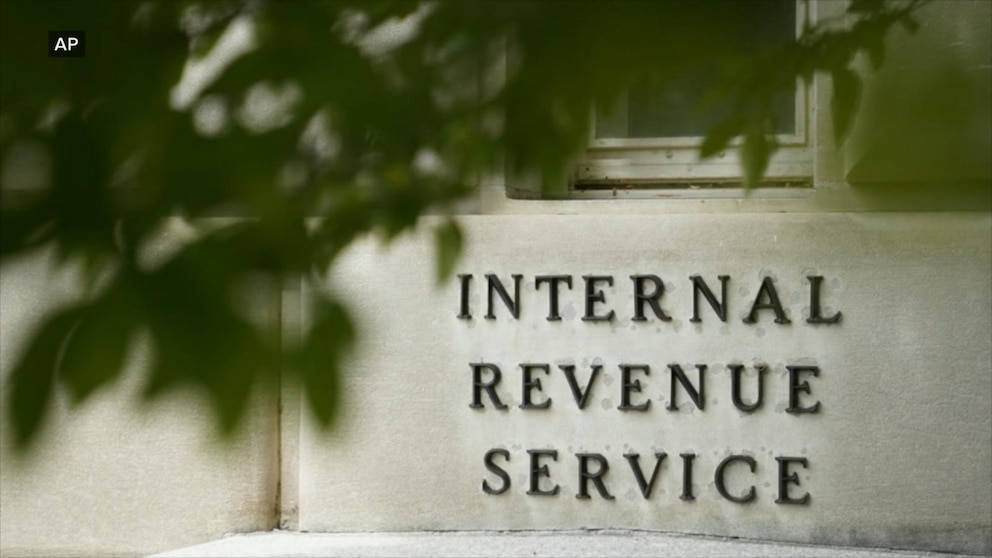Introduction: The IRS Under Pressure as Tax Day Approaches
The Internal Revenue Service (IRS) is facing significant challenges as it prepares for the upcoming tax season, with concerns mounting over budget cuts that could severely impact its ability to serve taxpayers effectively. Tax Day, the deadline for filing individual tax returns, is just months away, and the IRS is grappling with reduced funding, staffing shortages, and a growing backlog of unprocessed tax returns from previous years. These issues come at a critical time, as millions of Americans rely on the IRS for timely refunds, accurate tax calculations, and assistance with complex tax-related questions.
The IRS has been a cornerstone of the U.S. financial system, responsible for collecting taxes, enforcing tax laws, and providing essential services to taxpayers. However, in recent years, the agency has faced criticism for inefficiencies, outdated technology, and inadequate funding. The latest round of budget cuts has heightened these challenges, raising questions about whether the IRS will be able to manage the impending tax season without significant disruptions.
The Impact of Budget Cuts on IRS Operations
The IRS has seen its budget shrink over the past decade, with appropriations falling by nearly 20% when adjusted for inflation. These cuts have resulted in fewer staff members, outdated technology, and reduced resources for taxpayer services. As the agency approaches the 2023 tax season, it is clear that these financial constraints will have far-reaching consequences.
One of the most immediate effects of the budget cuts is the reduction in IRS personnel. With fewer employees, the agency is struggling to keep up with the volume of tax returns, audits, and customer service requests. This has led to longer wait times for taxpayers seeking assistance over the phone or in person. In previous years, the IRS has reported that only a small fraction of calls were answered during peak tax seasons, and this problem is expected to worsen with fewer staff members available to help.
Additionally, the IRS’s outdated technology infrastructure is compounding the problem. The agency relies on decades-old systems that are prone to errors and inefficiencies, making it difficult to process tax returns quickly and accurately. Budget cuts have limited the IRS’s ability to modernize these systems, leaving taxpayers vulnerable to delays and errors during the filing process.
Taxpayers Feel the Pain: Delays and Inconveniences
As the IRS struggles to manage its reduced resources, taxpayers are bearing the brunt of the consequences. One of the most significant concerns is the potential delay in processing tax returns and issuing refunds. For millions of Americans, tax refunds are a critical source of income, often used to pay bills, cover unexpected expenses, or save for the future. Delays in refund processing could create financial strain for many households, particularly those with limited savings or high debt levels.
Another issue facing taxpayers is the lack of adequate customer service. The IRS has traditionally provided support through phone lines, online resources, and in-person assistance. However, with fewer staff members, these services are becoming increasingly unavailable or unreliable. Taxpayers who encounter issues with their returns or have questions about tax laws may find themselves waiting on hold for hours or even days, only to be disconnected or forced to seek help elsewhere.
The challenges are particularly acute for low-income taxpayers and small business owners, who often rely on the IRS for guidance on complex tax matters. Without access to timely and accurate information, these individuals may be at risk of making costly errors on their tax returns, which could result in penalties, fines, or even audits.
The Broader Implications: Revenue Loss and Tax Compliance
The budget cuts to the IRS also have broader implications for the U.S. economy and tax system. One of the primary responsibilities of the IRS is to enforce tax laws and ensure compliance, a task that is becoming increasingly difficult with reduced resources. As a result, there are concerns that tax evasion and noncompliance may rise, leading to a loss of revenue for the federal government.
This trend could have far-reaching consequences, as the federal government relies heavily on tax revenue to fund essential programs, infrastructure projects, and social services. If the IRS is unable to effectively enforce tax laws, the government may face a shortfall in funding, which could impact everything from healthcare and education to national defense and public safety.
Furthermore, the decline in IRS enforcement capabilities could create an uneven playing field for taxpayers. While some individuals and businesses may take advantage of the system by underreporting income or claiming fraudulent deductions, others may follow the rules only to find themselves at a competitive disadvantage. This erosion of trust in the tax system could undermine public confidence in the government and lead to widespread frustration among taxpayers.
The Future of Tax Administration: Challenges and Opportunities
As the IRS faces the challenges of the upcoming tax season, there is a growing recognition that the agency needs a more sustainable and effective approach to tax administration. While budget cuts have exacerbated the problem, they are not the only factor at play. The IRS must also contend with the increasing complexity of tax laws, the rise of digital payment systems, and the growing sophistication of tax evasion schemes.
To address these challenges, some experts argue that the IRS needs to undergo a comprehensive transformation, including modernizing its technology, streamlining its operations, and improving its customer service capabilities. This would require not only additional funding but also a commitment to innovation and collaboration with other government agencies and private sector partners.
At the same time, there are opportunities for the IRS to improve its efficiency and effectiveness in the years ahead. For example, the agency could leverage artificial intelligence and machine learning to better detect and prevent tax fraud, while also providing taxpayers with more personalized and accessible support. These innovations could help the IRS manage its workload more effectively, even with limited resources, and restore trust in the tax system.
Conclusion: A Call to Action for Taxpayer Advocate
As the IRS prepares for the challenges of the 2023 tax season, it is clear that the agency is at a crossroads. The budget cuts have created significant obstacles, but they also highlight the need for a more robust and resilient tax system. Taxpayers, policymakers, and stakeholders must come together to ensure that the IRS has the resources and support it needs to fulfill its mission effectively.
While the immediate focus is on managing the upcoming tax season, the long-term health of the IRS and the U.S. tax system depends on addressing the underlying issues of inadequate funding, outdated technology, and insufficient staffing. By investing in the IRS and prioritizing taxpayer needs, the government can create a more equitable and efficient tax system that works for everyone.
In the end, the success of the IRS is not just about collecting taxes; it is about building trust, ensuring fairness, and supporting the economic well-being of the nation. As Tax Day approaches, the stakes are high, and the time to act is now.















